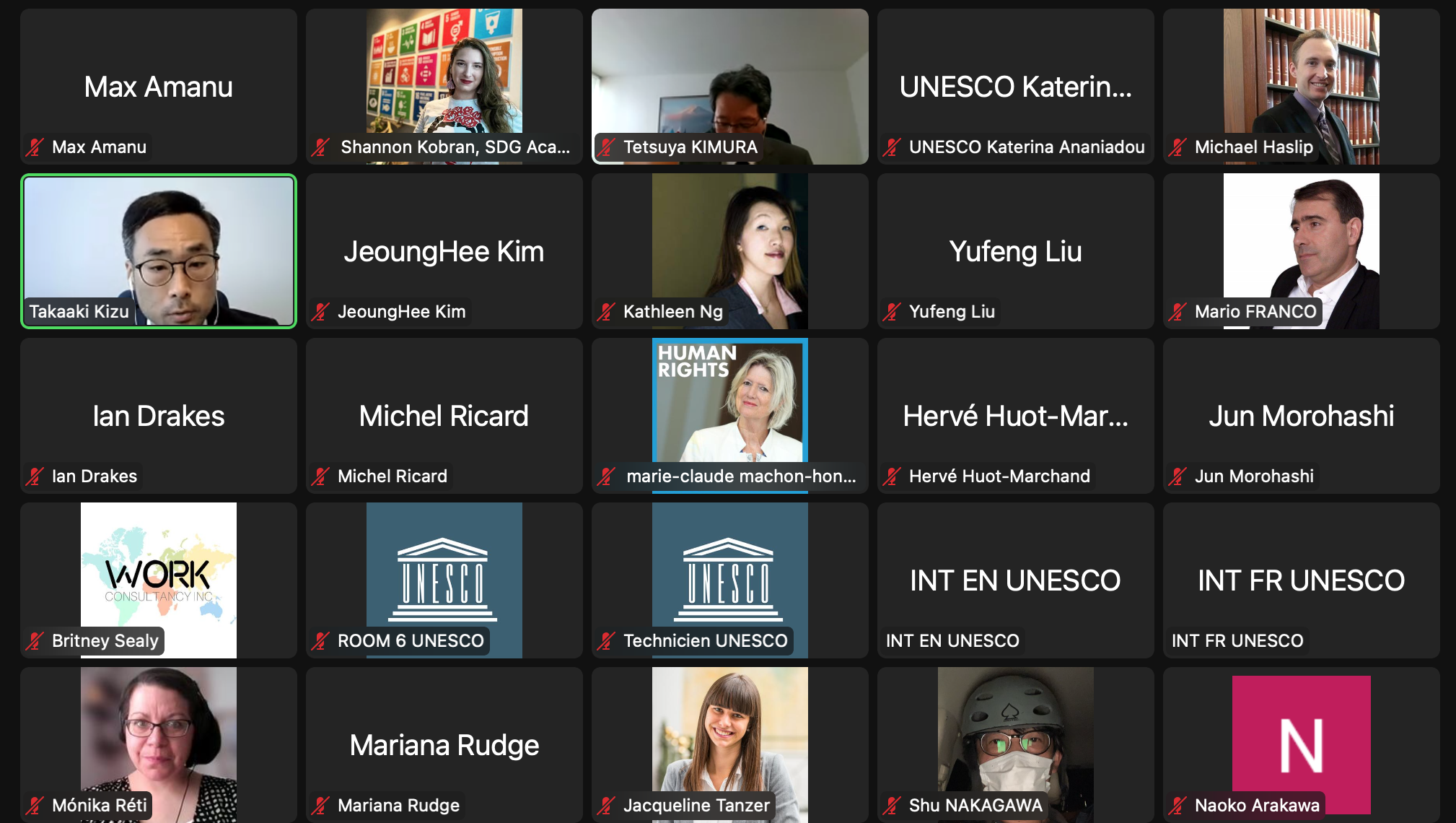Mission 4.7 joins the open consultation for the UN Transforming Education Summit’s Action Track 2 on “Learning and skills for life, work, and sustainable development”
Mission 4.7 welcomes and supports ongoing work on Thematic Action Track 2 of the upcoming Transforming Education Summit, focusing on “Learning and skills for life, work, and sustainable development.”
We are in an important moment for education. The global community is gearing up for the UN Transforming Education Summit (TES) in September 2022. As the organizing agency for this ambitious agenda, UNESCO is coordinating a number of different consultations and engagement processes to ensure the widest possible participation in preparations for the Summit. This includes Stakeholder Consultations for the Summit itself, as well as open consultations and comment-gathering on the Summit’s five Thematic Action Tracks.
On 25 May, Mission 4.7 was pleased to participate in the first open consultation for Thematic Action Track 2: “Learning and skills for life, work, and sustainable development.” The most content-oriented of the tracks, and the track most directly related to SDG Target 4.7, Action Track 2 seeks to promote educational transformation in three broad areas—foundational literacies, including digital literacy; skills for employment in the 21st century; and comprehensive education for sustainable development and global citizenship, including climate and environmental education—from the perspective of lifelong learning.
Source: 1st public consultation on Transforming Education Summit Thematic Action Track 2: “Learning and skills for life, work, and sustainable development,” UNESCO. Date: 25th May 2022
The first open consultation sought stakeholder feedback on a draft of the Action Track 2 Discussion Paper, which aims to outline the many needs of educational transformation for life, work, and sustainable development. The final draft of this discussion paper will be accompanied by a selection of best practices from around the world, which together will inform Member States’ commitments and transformational pathways.
The open consultation was hosted by UNESCO and moderated by H.E. Mr. Tetsuya Kimura, Ambassador for Economic, Social and UN Management Affairs at the Permanent Mission of Japan to the United Nations. Japan, along with Colombia and an SDG4Youth advocate, are leading work on this Action Track. Mr. Kimura opened the discussion by emphasizing the need to “green” the future of work and reorient educational approaches for holistic wellbeing. His remarks were followed by statements from several stakeholder representatives,who shared their perspectives on the necessary transformations to advance skills for life, work, and sustainable development. For instance, Prof. Dzul Razak, Rector of the International Islamic University Malaysia, powerfully articulated the need to adopt a whole-person approach to education, encouraging us to “unlearn” what is not serving us, and focus instead on a humanistic, values-based approach to education. The world of work is changing rapidly, and hard skills come and go, but transversal competencies and sustainable mindsets are universal. We loudly echo Prof. Razak’s remarks!
Participants then broke out into groups for further discussion about the Action Track 2 draft paper. Stakeholders identified a number of topics that should have greater representation or clarity in the document, including:
The need for meaningful channels of engagement among all stakeholders, especially youth, not only to identify challenges but also to propose and implement solutions;
The need for flexibility in education systems, acknowledging and encouraging different pathways through lifelong education;
A reframing of teachers as facilitators of students’ learning, rather than as arbiters of knowledge (known as the “banking” model of education);
An emphasis on different types and sources of knowledge, including local and indigenous knowledge; and
More discussion of the resources necessary for effective transformation of curriculum and pedagogy, including the resource of time and the incentive to spend that time on transformation, which educators often lack.
Groups were also asked to think about how to best translate knowledge into policy and practice. Recurring suggestions included:
Better “marketing” of educational reform to various audiences, including heavier data-driven promotion of consequences of inaction and benefits of transformation;
The inclusion of policymakers and other stakeholders in the design and implementation of research, to improve engagement and understanding;
Localizing broad frameworks for teachers, school leaders, parents, and other on-the-ground stakeholders, and distilling key messages and action points;
Ensure academic freedom and fight the use of education for oppression; and
Develop an actionable accountability framework with which to hold Member States accountable for commitments made towards educational transformation.
We look forward to seeing these insightful remarks reflected in the next draft of the discussion paper.
Stakeholders can submit written comments on the current draft in English or French until 31 May. A revised draft of the paper will be available on 3 June, followed by a second open consultation on 10 June.
In addition to the Thematic Action Track consultations, teams led by UNESCO and UNICEF are conducting national consultations in 130 Member States. These multi-stakeholder consultations will produce reports on how education should transform in each national context. These reports will be presented at the TES Pre-Summit in late June, and will inform Member States’ political commitments at the Summit in September.
The Pre-Summit, which will take place from June 28-30 in Paris, will include a Youth Forum and ministerial panels. Youth engagement and intergenerational discourse is at the heart of the TES. As Leonardo Garnier, Special Adviser for the 2022 Transforming Education Summit summarized, the goal is to generate a global movement around education the way there is a movement around climate change, to put public pressure on political leadership to make the changes we need to build the future we want.
Mission 4.7 is proud to be part of these historic consultations, and we look forward to contributing to the ongoing discussions leading up to the Pre-Summit, the Summit, and beyond.
To learn more about the UN Transforming Education Summit and find opportunities for engagement, join the Transforming Education Knowledge Hub.
Follow the TES on Twitter at @TransformingEdu and join the conversation using #TransformingEducation.




